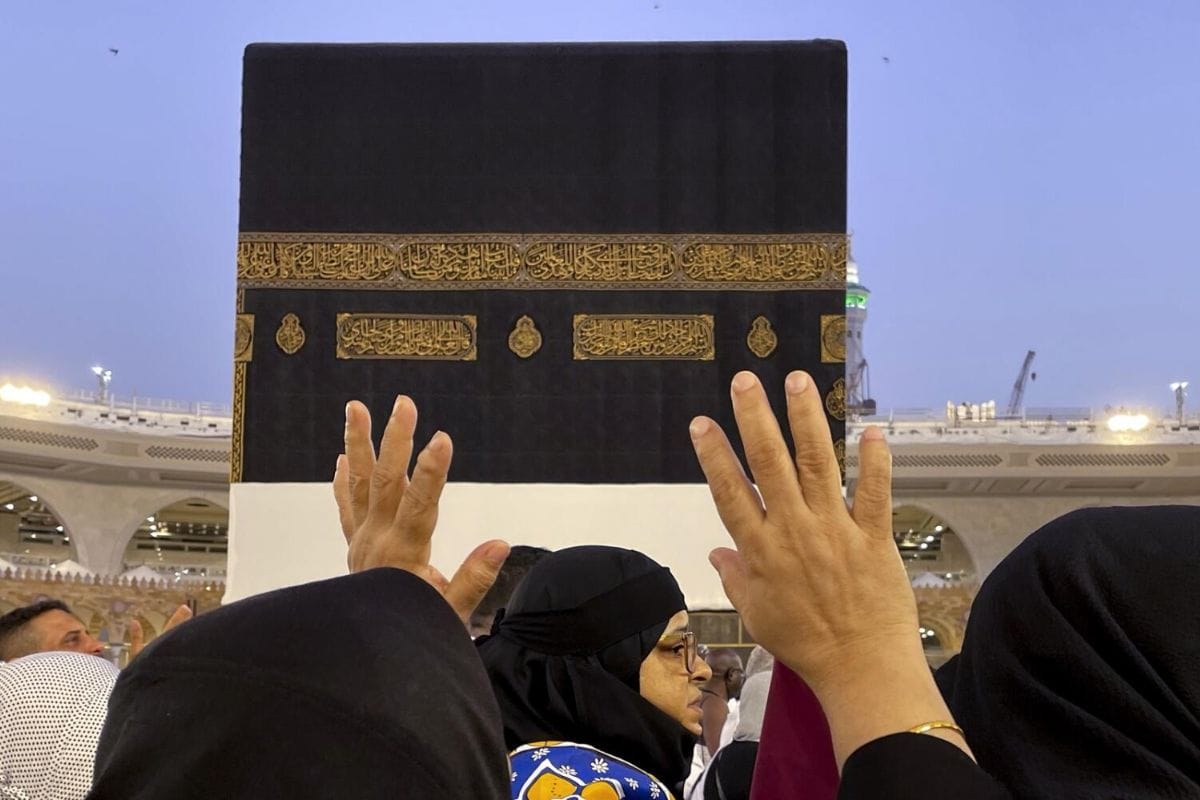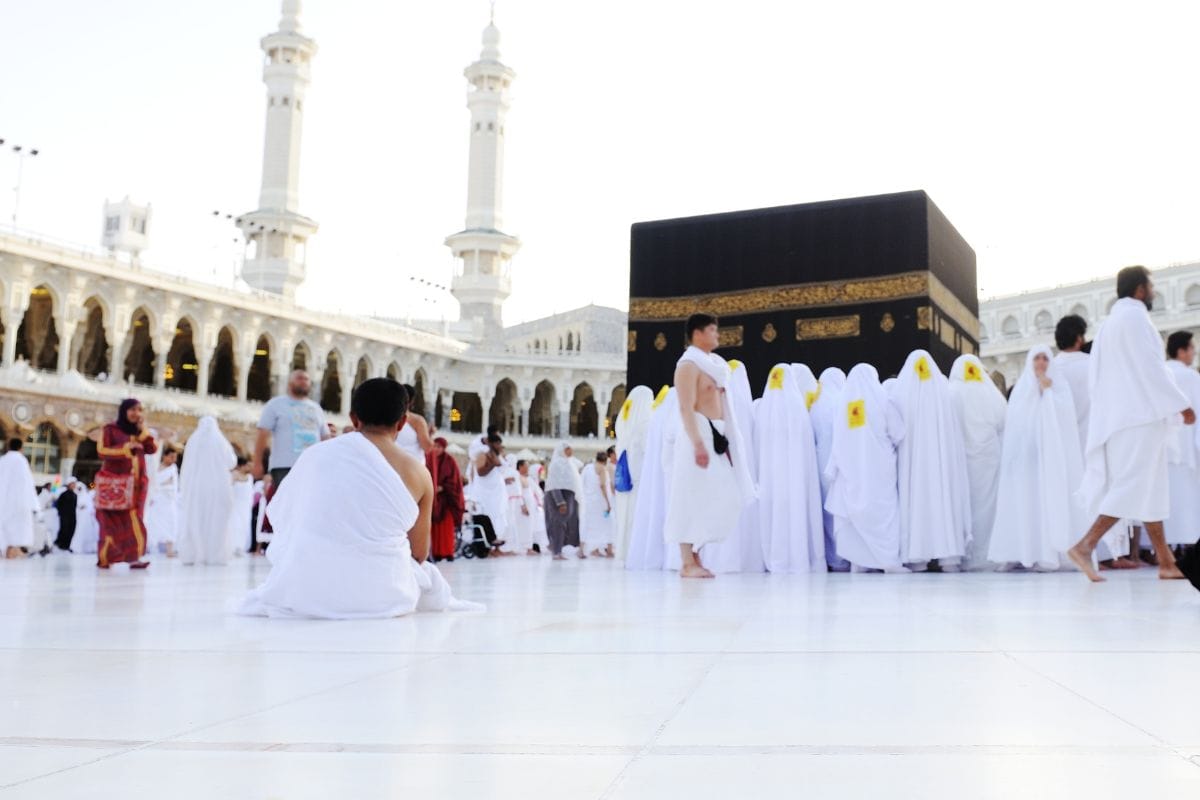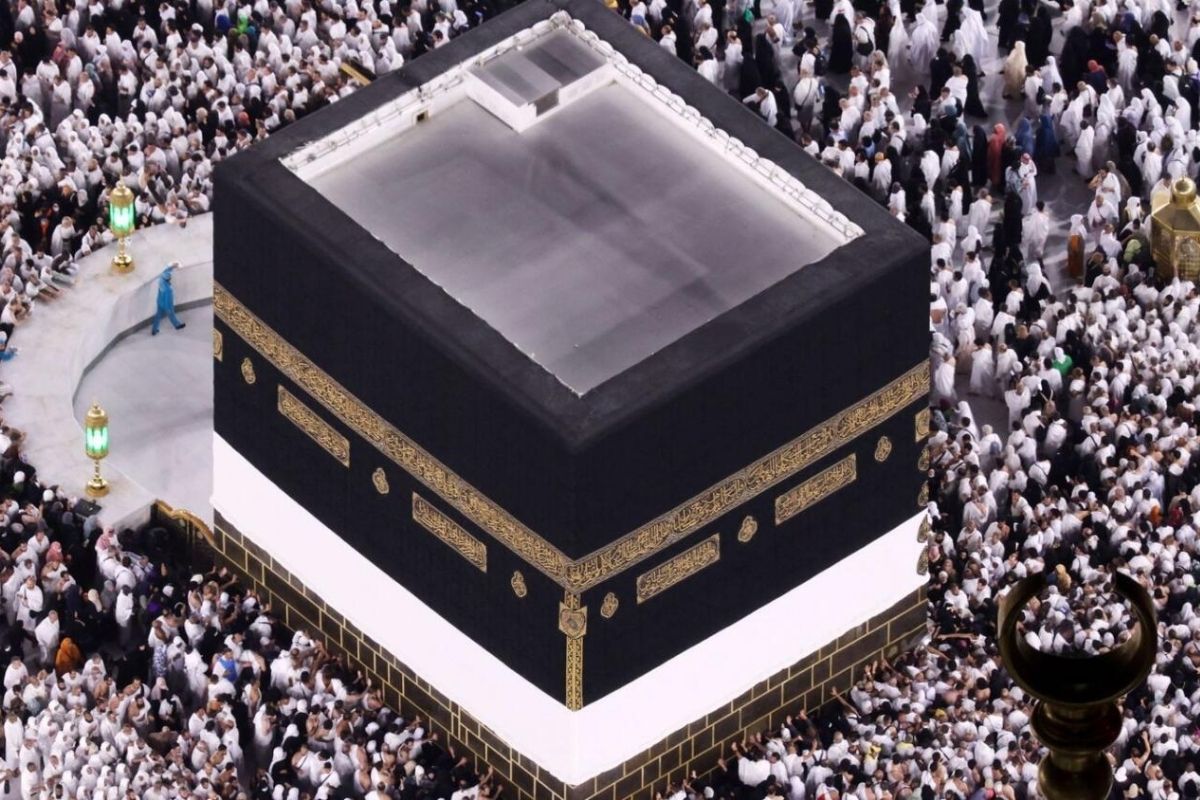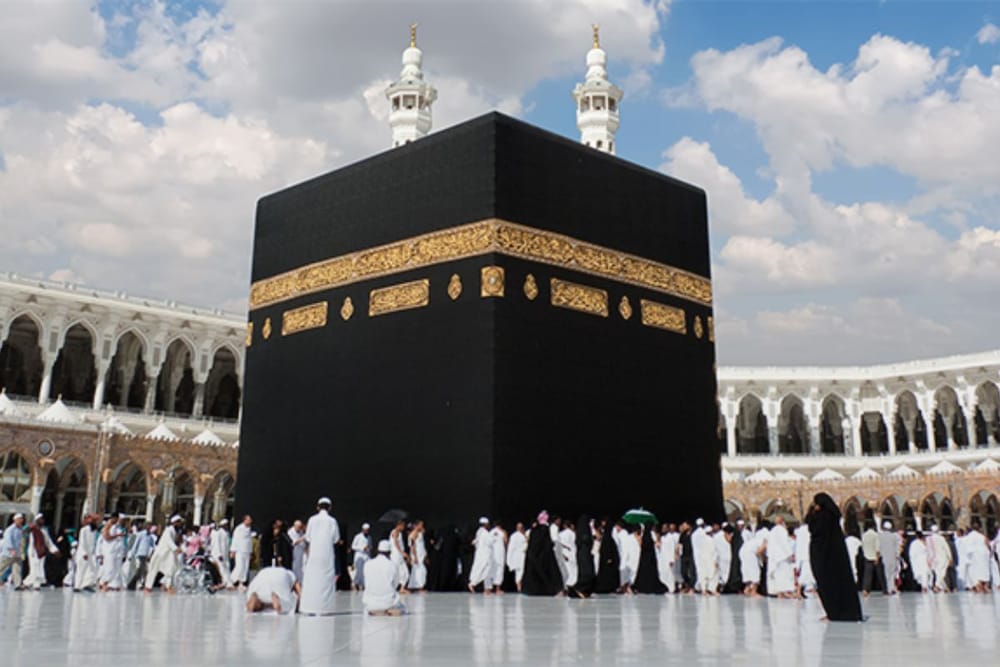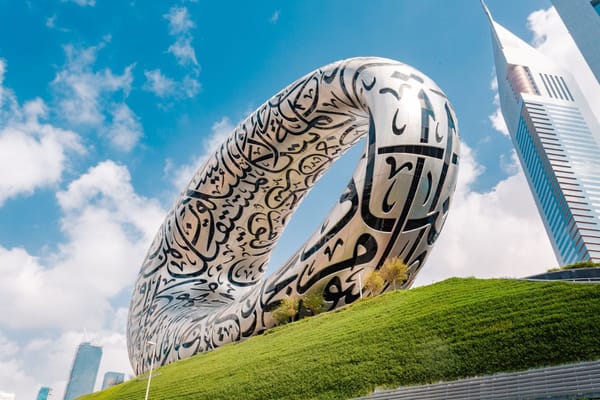Each year, millions of Muslims from around the world embark on a journey of profound spiritual significance: the Hajj pilgrimage to Makkah. This year is no different, as the sacred month of Dhu Al Hijja is here, bringing with it the anticipation and preparation for Hajj. For Muslims, this pilgrimage is not merely a journey to a distant land but a transformative experience that embodies faith, devotion and unity.
The preparations for Hajj begin months in advance, with pilgrims ensuring they are spiritually, physically, and financially ready to undertake this journey. The excitement and reverence for this significant event are palpable in the Muslim community as families and friends gather to support and pray for those embarking on this sacred trip.
Let’s explore the various facets of Hajj, starting with an understanding of what this holy pilgrimage entails.
What is Hajj and Its Importance?
Hajj is one of the five pillars of Islam, an obligatory act of worship that every Muslim who is physically and financially capable must perform at least once in their lifetime. It is the largest annual gathering of Muslims, where millions congregate to undertake a series of rituals established by the Prophet Mohammed centuries ago.
The roots of Hajj date back over 1,300 years, but some elements extend even further, to the time of Prophet Ibrahim (Abraham) around 1813 BC. According to Islamic tradition, God commanded Ibrahim to leave his wife, Hagar, and their son, Ismail, in the desert of Makkah. In her desperate search for water, Hagar ran between the hills of Al Safa and Al Marwa seven times. Her unwavering faith was rewarded when a spring, now known as the Well of Zamzam, miraculously emerged. This act is commemorated by pilgrims who perform the Sa'ey, walking between these hills.
The significance of Hajj is manifold. It symbolizes the unity of Muslims as they gather regardless of race, nationality, or socio-economic status, dressed in simple, white garments known as Ihram. The pilgrimage also serves as a reminder of the Day of Judgment, promoting introspection, repentance, and spiritual renewal.
When is Hajj and How Long Does It Last?
Hajj takes place during Dhu Al Hijja, the twelfth and final month of the Islamic lunar calendar. This year, Hajj will occur from the 8th to the 13th of Dhu Al Hijja, corresponding to June 14th to June 19th, 2024, in the Gregorian calendar.
The pilgrimage typically lasts between four to six days, depending on the speed and itinerary of the pilgrim. The exact duration can vary, with some pilgrims opting for a more extended stay to fully immerse themselves in the spiritual experience.
The 7 Steps of Hajj
Hajj involves a series of rituals, each symbolizing different aspects of faith and history. Here’s a brief overview of the seven key steps:
- Ihram: Before beginning Hajj, pilgrims enter a state of spiritual purity called Ihram, wearing specific attire and making a formal intention (Niyyah) to perform the pilgrimage.
- Tawaf: Pilgrims perform Tawaf by circling the Kaaba, Islam’s holiest site, seven times in a counter-clockwise direction, symbolizing the unity of believers in the worship of the one God.
- Sa'ey: This involves walking seven times between the hills of Safa and Marwa, commemorating Hagar’s search for water for her son Ismail.
- Mina: Pilgrims travel to Mina, a tent city, where they spend the night in prayer and contemplation.
- Arafat: The most critical day of Hajj is spent on the plain of Arafat, where pilgrims stand in prayer and reflection, seeking forgiveness and making supplications.
- Muzdalifah: After sunset, pilgrims move to Muzdalifah to gather pebbles and spend the night in open-air prayer.
- Ramy al-Jamarat: Pilgrims throw pebbles at three pillars in Mina, symbolizing the rejection of evil. This is followed by the sacrificial ritual of Eid al-Adha and the final Tawaf, or Tawaf al-Ifadha.
Hajj 2024 from UAE: Requirements and Rules
For residents of the UAE planning to perform Hajj in 2024, several requirements and guidelines must be adhered to. Here are the key points:
Visa and Permits
UAE nationals do not require a visa but must obtain an official Hajj permit. Expats must secure their Hajj visa through licensed tour operators and meet specific documentation requirements, such as a valid passport, recent photos, and proof of vaccinations against meningococcal disease and other mandatory vaccines.
The process for obtaining a Hajj permit includes registering through the AWQAF UAE application and choosing an authorized Hajj campaign.
Vaccination Requirements
Pilgrims must complete vaccinations, including those for COVID-19, influenza, meningitis, and polio, at least 10 days before the pilgrimage. Vaccinations help ensure the health and safety of all pilgrims, preventing the spread of infectious diseases during the Hajj.
Health Protocols
Strict health measures are in place, particularly for vulnerable groups such as the elderly and those with chronic illnesses. Pilgrims must ensure they are in good health and adhere to safety protocols throughout the journey. This includes regular health check-ups, carrying necessary medications, and following hygiene practices to minimize the risk of illness.
Age and Testing
Hajj is open to individuals over 12 years of age, provided they have completed necessary vaccinations. Regular health check-ups and adherence to hygiene standards are essential.
How to Go for Hajj from Dubai
For UAE Nationals
UAE nationals can take advantage of express Hajj packages, where they arrive in Makkah just before the rituals begin and depart shortly after they end. They must obtain a Hajj permit, which can be arranged through authorized Hajj tour operators.
For GCC Expats
Expats from GCC countries must also secure a Hajj permit. They follow a similar process to UAE nationals but may need to provide additional documents, depending on their country of origin.
For Other Expats:
Non-GCC expats residing in the UAE must obtain a Hajj visa from their home country. This visa allows entry to Makkah and Madinah but not other Saudi cities. They must also ensure compliance with vaccination and health requirements.
How to Apply for Hajj 2024 from UAE
For residents of the UAE planning to undertake the Hajj pilgrimage in 2024, it is essential to follow the correct procedures and prepare all necessary documentation well in advance. Here are the steps and requirements to apply for Hajj:
Accommodation Standards
All pilgrimage operators must provide suitable accommodations licensed by the Ministry of Hajj and the Civil Defence in Saudi Arabia. These accommodations should meet high standards of quality, hygiene, and capacity to ensure a safe and comfortable stay for all pilgrims.
Required Documents
To obtain a Hajj visa, pilgrims must provide the following documents to their Hajj tour operators in Dubai:
- Original Passport that must be valid for at least six months. For expats, the UAE residence visa must have a minimum validity of three months.
- Copy of Passport which should be a digital file in formats like images, Word, or PDF, with a file size of 100 KB.
- Copy of Emirates ID which is also required in digital format.
- Passport Photos with a white background and should meet the specific requirements for visa processing.
- A Signed Contract with the selected Hajj campaign operator must be signed and submitted.
- Mahram Letter which is a proof of kinship from a male relative for women under 45. Women above 45 can travel with a Hajj group if they submit a no-objection letter from their husband, son, or brother.
Application Process
The steps for UAE pilgrims to apply for Hajj are as follows:
- Selection of an Authorized Delegation
- Signing a Contract
- Document Submission
- Vaccinations
- Receiving the Hajj Permit
For expatriates, applications must be submitted to the responsible body in their home country, as the UAE does not issue Hajj permits to expats. Hajj delegations provide forms and guidance on the necessary steps to book and confirm participation in the pilgrimage.
Hajj 2024 from UAE Packages
Several travel agencies in Dubai offer Hajj packages that include accommodation, transportation, and guided tours. Here are a few government-approved operators:
Regal Tours Dubai
Offers comprehensive Hajj packages including flight booking, hotel accommodation, and guided tours. They provide various packages catering to different budgets, including VIP packages ensuring that pilgrims can choose a package that meets their needs.
Contact: +971 50 8474 794 | +971 4 2635 888
Al Reayah Hajj & Umrah Dubai
Provides packages covering all aspects of the Hajj journey, from visa processing to on-ground support. They are known for their personalized service, helping pilgrims navigate the complexities of the Hajj journey with ease.
Contact: +971 55 971 1146 | +971 4 252 3130
Al Hamar Hajj & Umrah Services Dubai:
Specializes in customized Hajj packages tailored to meet individual needs. They offer a range of packages that include premium services and accommodations close to the holy sites, ensuring a comfortable and memorable pilgrimage.
Contact: +971 4 396 7711
These agencies ensure that pilgrims have access to quality services, including suitable accommodations and transportation, aligned with Saudi Arabian regulations.
The Hajj pilgrimage is a profound journey of faith, reflection, and spiritual renewal. It brings Muslims from all walks of life together in a display of unity and devotion.
For those planning to undertake this sacred journey from Dubai, preparation and adherence to guidelines are essential to ensure a fulfilling and safe experience. As you embark on this path, may your journey be blessed and your faith strengthened, leaving you with memories and spiritual insights that last a lifetime.
Also Read:
